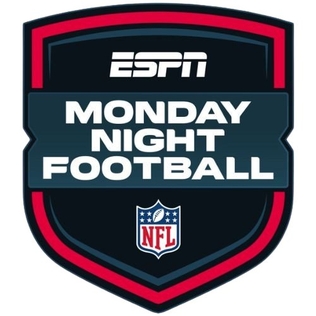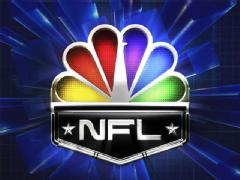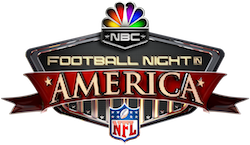Related Research Articles

Ion Television is an American broadcast television network and FAST television channel owned by the Scripps Networks subsidiary of the E. W. Scripps Company. The network first began broadcasting on August 31, 1998, as Pax TV, focusing primarily on family-oriented entertainment programming. It rebranded as i: Independent Television on July 1, 2005, converting into a general entertainment network featuring recent and older acquired programs. The network adopted its identity as Ion Television on January 29, 2007.

Monday Night Football is the branding used for broadcasts of National Football League (NFL) games that primarily air on Monday nights. It originally ran on ABC from 1970 to 2005, before moving exclusively to sister network ESPN in 2006. While ESPN remains the primary channel for the games, MNF returned to ABC for select simulcasts with ESPN in 2020, and two years later, it began featuring select exclusive ABC telecasts. In addition, ESPN2 has featured alternate telecasts of selected games since 2020 as the Manningcast, while ESPN+ has streamed MNF simulcasts in the United States since 2021.

NFL Primetime is a sports television program that has aired on ESPN since 1987. The show is presented similarly to ESPN's own SportsCenter, featuring scores, highlights, and analysis of every game of the week in the NFL.

NFL Network is an American sports-oriented pay television network owned by the National Football League (NFL) and is part of NFL Media, which also includes NFL.com, NFL Films, NFL Mobile, NFL Now and NFL RedZone. Dedicated to American football, the network features game telecasts from the NFL, as well as NFL-related content including analysis programs, specials and documentaries. The network is headquartered in the NFL Los Angeles building located next to SoFi Stadium in Inglewood, California, and broadcasts its worldwide feed from Encompass Digital Media in Atlanta, Georgia. The network has secondary East Coast facilities in the NFL Films building in Mount Laurel, New Jersey.
The NFL Today is an American football television program on CBS that serves as the pre-game show for the network's National Football League (NFL) game telecasts under the NFL on CBS brand. The program features commentary on the latest news around the NFL from its hosts and studio analysts, as well as predictions for the day's games and interviews with players and coaches. Originally debuting as Pro Football Kickoff on September 17, 1961, the program airs before all NFL games broadcast by CBS, and generally runs for one hour. The program's commentators also provide commentary during game updates, the halftime reports, and the postgame show on the NFL on CBS broadcasts.
The NFL on CBS is the branding used for broadcasts of National Football League (NFL) games that are produced by CBS Sports, the sports division of the CBS television network in the United States. The network has aired NFL game telecasts since 1956. From 2014 to 2017, CBS also broadcast Thursday Night Football games during the first half of the NFL season, through a production partnership with NFL Network.

The television rights to broadcast National Football League (NFL) games in the United States are the most lucrative and expensive rights of any sport in the world. Television brought professional football into prominence in the modern era after World War II. Since then, National Football League broadcasts have become among the most-watched programs on American television, and the financial fortunes of entire networks have rested on owning NFL broadcasting rights. This has raised questions about the impartiality of the networks' coverage of games and whether they can criticize the NFL without fear of losing the rights and their income.

The NFL on NBC is the branding used for broadcasts of National Football League (NFL) games that are produced by NBC Sports, and televised on the NBC television network and the Peacock streaming service in the United States.
Inside the NFL is an American weekly television sports show that focuses on the National Football League (NFL).

Football Night in America (FNIA), branded for sponsorship purposes as Football Night in America served by Applebee's, is an American pre-game show that is broadcast on NBC, preceding its broadcasts of Sunday night and postseason National Football League (NFL) games. The program debuted on September 10, 2006, when the network inaugurated its Sunday prime time game package. The 80-minute program airs live at 7:00 p.m. Eastern Time, and is broadcast from Studio 1 at NBC Sports Headquarters in Stamford, Connecticut. Prior to 2012, Football Night in America originally broadcast from the GE Building in New York City, first out of Studio 8G from 2006 to 2012 and in 2013, from Studio 8H, where Saturday Night Live is also taped.
The Prime Time Access Rule (PTAR) was an American television broadcasting regulation enforced by the Federal Communications Commission (FCC) from September 13, 1971, to August 30, 1996. It was instituted under concerns that television networks controlled too much of their affiliates' programming, and that there was not enough competition in program production and distribution. Under the regulation, commercial television networks were prohibited from airing programming in the 7:30 p.m. ET/PT half-hour on weekdays and Saturdays, and the 7:00 p.m. and 10:30 p.m. ET/PT half-hours on Sundays, on stations in the top 50 media markets. Despite only applying in the largest markets, the PTAR was practiced nationwide.

NFL GameDay is an American television program that features highlights of the National Football League games for the day. It airs on the NFL Network, having debuted on September 10, 2006. The program starts at either 11:00 p.m. Eastern time or the moment that NBC Sunday Night Football concludes, whichever is later. When NBC does not carry a game, it begins at 8 p.m. ET, or after NFL RedZone goes off the air, which happened twice in 2006, on October 22 and December 24, and also on December 31, 2017.
NFL Replay is a program that airs on the official television channel of the National Football League, NFL Network.
A graveyard slot is a time period in which a television audience is very small compared to other times of the day, and therefore broadcast programming is considered far less important. Graveyard slots are usually situated in the early morning hours of each day, when most people are asleep.
The history of the National Football League on television documents the long history of the National Football League on television. The NFL, along with boxing and professional wrestling, was a pioneer of sports broadcasting during a time when baseball and college football were more popular than professional football. Due to the NFL understanding television at an earlier time, they were able to surpass Major League Baseball in the 1960s as the most popular sport in the United States. Today, NFL broadcasting contracts are among the most valuable in the world.
During the early 1960s, NFL Commissioner Pete Rozelle envisioned the possibility of playing at least one game weekly during prime time that could be viewed by a greater television audience. An early bid by the league in 1964 to play on Friday nights was soundly defeated, with critics charging that such telecasts would damage the attendance at high school football games. Undaunted, Rozelle decided to experiment with the concept of playing on Monday night, scheduling the Green Bay Packers and Detroit Lions for a game on September 28, 1964. While the game was not televised, it drew a sellout crowd of 59,203 spectators to Tiger Stadium, the largest crowd ever to watch a professional football game in Detroit up to that point.
Recently, the NFL's TV broadcasters have suffered annual financial losses because advertising revenue is unable to keep up with the rising costs of broadcast rights.
The 2021–22 afternoon network television schedule for the four major English-language commercial broadcast networks in the United States covers the weekday and weekend afternoon hours from September 2021 to August 2022. The schedule is followed by a list per network of returning and cancelled shows from the 2020–21 season.
The 2022–23 afternoon network television schedule for the four major English-language commercial broadcast networks in the United States covers the weekday and weekend afternoon hours from September 2022 to August 2023. The schedule is followed by a list per network of returning and cancelled shows from the 2021–22 season. The daytime schedules for the four major networks that offer afternoon programming are expected to remain consistent with the prior television season.
References
- ↑ "NFL Game of the Week". IMDb . 25 September 1965.
- ↑ Moss, Linda (September 10, 2004), "ION Gets NFL 'Game of the Week'", Multichannel News